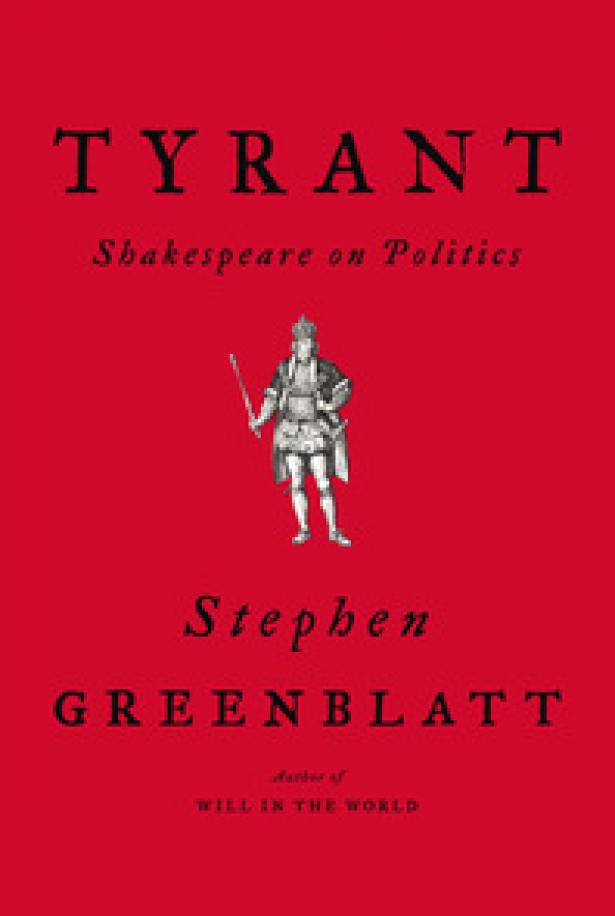Tyrant
Shakespeare on Politics
Stephen Greenblatt
W.W. Norton
ISBN 978-0-393-63575-1
As Queen Elizabeth I’s 50-year reign over England entered its latter years, a controversial and gifted playwright entered the theater scene and dove head first into the social causes, psychological roots, and cruel consequences of tyranny. In plays like Richard III, Macbeth, and King Lear, William Shakespeare probed the psyche of his characters rampant lust for absolute power and the long-term effects on its calamitous execution.
He asked himself, “How is it possible for a whole country to fall into the hands of a tyrant?” Under what circumstances . . . do such cherished institutions, seemly deep-rooted and impregnable, suddenly prove fragile?
Esteemed traditions were crumbling, political loyalties were blurred, severe economic woes fueled anti-elitist resentment, average citizens willingly allowed wanton lies and partisan vindictiveness to permeate everyday life. Shakespeare was captivated by all aspects of these societal crises and calamities. With intelligent, clever and poignant awareness, Shakespeare zeroed in on the childish mindsets and ravenously egotistical desires of these firebrands—and the cynicism and unscrupulousness of the numerous enablers and associates who surrounded them. Any of this sound familiar?
In Tyrant: Shakespeare on Politics, Pulitzer Prize and National Book Award winning author Stephen Greenblatt explores the legendary playwright’s unique perceptions and insights of wicked and immoral rulers. A world renowned Shakespearian expert, Greenblatt is a professor of Humanities at Harvard University and has written numerous books that include The Swerve, Will in the World, and The Rise and Fall of Adam and Eve.
Greenblatt’s perceptive analysis and expert examination of the various tyrannical figures in Shakespeare’s works has an eerie parallel and peculiar familiarity to current political trends. Using the central characters of Shakespeare’s plays the author compellingly and captivatingly scrutinizes the conditions that permit the rise of despotic, dictatorial, and high-handed leaders.
Through skillful and knowledgeable use of quotes and excerpted passages, he provides a brilliant illustration of how intimidation and strong-arm tactics can suppress any political resistance and why anyone would “be drawn to a leader manifestly unsuited to govern, someone dangerously impulsive or viciously conniving or indifferent to the truth.”
Although Greenblatt does not specifically name or discuss any current political personalities, it can be naturally implied that contemporary figures are the main target of comparisons. But make no mistake, this book is essentially about President Donald J. Trump and his brand of populism, or at least what the author believes Shakespeare would have thought about him personally and his political movement.
Tyrant is a clever and well written interpretation of how our current political environment compares to Shakespeare’s most controversial and legendary works. Truth be told, Trump is no tyrant like Macbeth or Richard III, but Greenblatt’s compelling conversations on those who assist and are complicit to dictators is particularly illuminating.
Overall, this book is full of surprising and shocking insights that examine character politics and the exploitation of authoritarianism as it pertains to literary criticism. A must read for any student of classic literature, history, and politics.
Michael Thomas Barry is a staff reviewer at New York Journal of Books.


Spread the word